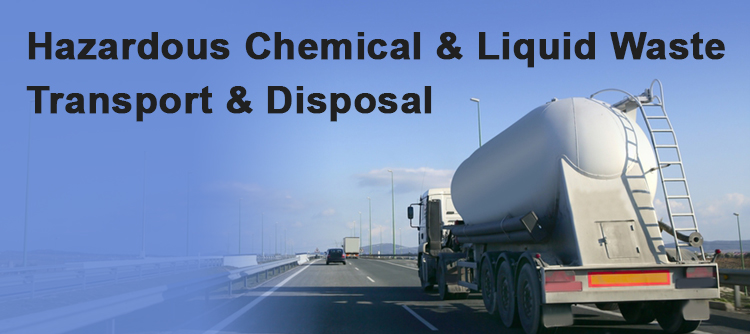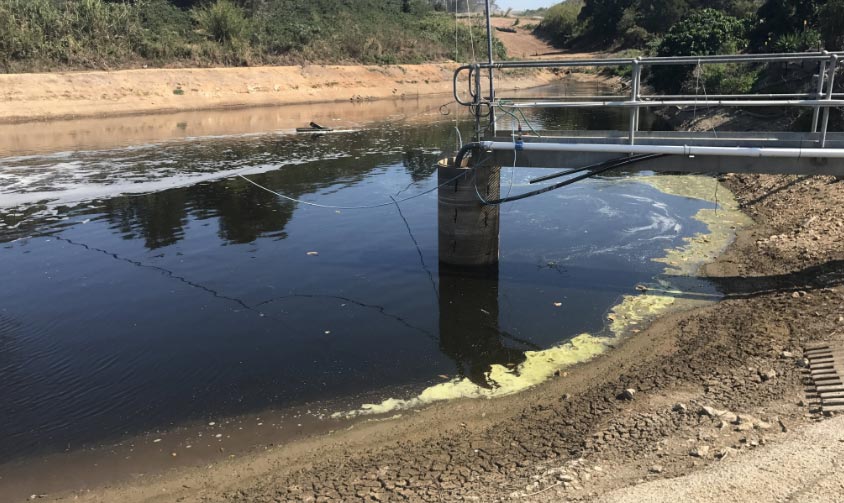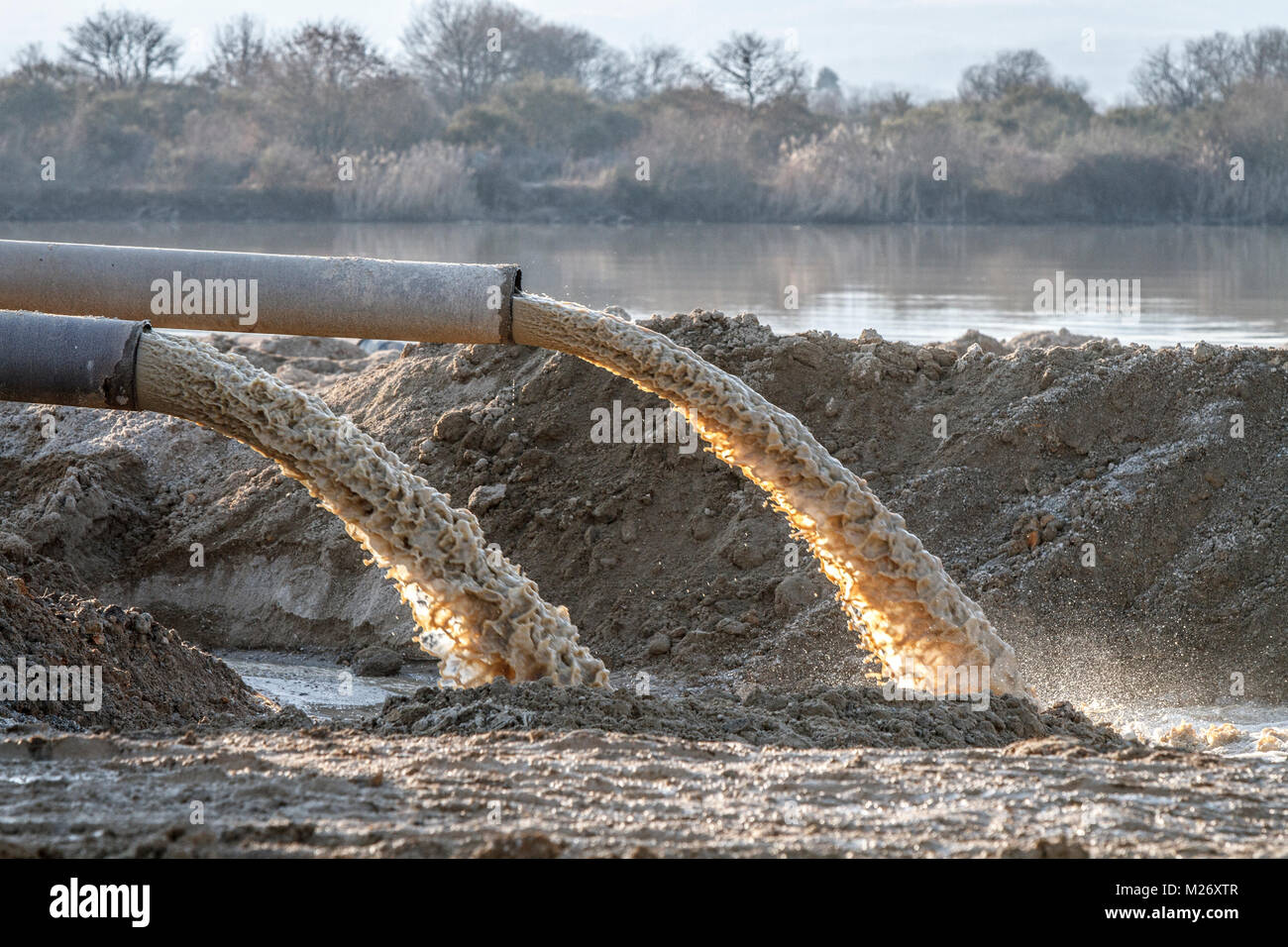Just How Liquid Garbage Disposal Functions: An In-depth Summary of Techniques and Technologies Used

Summary of Liquid Waste Types
The complexity of liquid waste kinds demands a thorough understanding of their features and effects for disposal. Fluid waste can broadly be classified right into numerous kinds, including industrial, community, agricultural, and hazardous waste. Each category shows distinctive properties, calling for certain administration techniques to reduce environmental and wellness dangers.
Industrial liquid waste originates from making processes and frequently contains a series of impurities, such as heavy steels, solvents, and natural compounds. Metropolitan fluid waste, mainly comprising wastewater from families and industrial facilities, consists of raw material, nutrients, and microorganisms (industrial wastewater treatment). Agricultural fluid waste, consisting of runoff from ranches, may have fertilizers, pesticides, and pet waste, presenting risks to water top quality and environments
Dangerous fluid waste is identified by its poisoning, reactivity, or prospective to trigger injury. Understanding these diverse liquid waste kinds is critical for developing efficient disposal techniques and making certain conformity with environmental policies.
Physical Treatment Techniques

Screening is the initial action, where bigger fragments and particles are eliminated from the liquid waste using screens or grates. This procedure shields downstream tools from damage and makes certain smoother operation. Complying with screening, sedimentation utilizes gravitational pressure to different solids from liquids. In sedimentation tanks, larger bits work out near the bottom, forming a sludge layer, while the made clear fluid can be further dealt with.
Filtering is an additional essential technique that entails passing the fluid with porous products, such as sand or membranes, to capture smaller particles. This action enhances the high quality of the liquid, making it suitable for subsequent therapy processes.

Chemical Therapy Techniques
Chemical treatment methods are important for efficiently taking care of fluid waste, particularly in resolving liquified and colloidal contaminants that physical approaches may not properly remove. These methods utilize numerous chemical agents to neutralize, speed up, or transform harmful compounds into much less dangerous kinds.
One usual approach is coagulation and flocculation, where chemicals such as alum or ferric chloride are included in promote the gathering of put on hold particles. This process boosts sedimentation, allowing for easier my blog elimination of the resulting sludge. Furthermore, oxidation procedures, utilizing agents like chlorine or ozone, are employed to damage down intricate natural compounds and microorganisms, providing the waste safer for discharge or further treatment.
Neutralization is an additional crucial method, which changes the pH of acidic or alkaline waste streams to neutral degrees, stopping possible damage to downstream systems and the setting. In addition, advanced oxidation processes (AOPs) use combinations of oxidants and ultraviolet light to degrade consistent contaminants, accomplishing a higher level of treatment performance.
Organic Therapy Processes
Organic therapy procedures play a critical duty in the management of liquid waste by utilizing microorganisms to decompose raw material and reduce contaminant levels. These processes can be broadly categorized into anaerobic and cardio therapies, each employing specific microbial areas to achieve effective waste degradation.
Aerobic therapy includes making use of oxygen to promote the break down of organic products by bacteria. This procedure is generally applied in turned on sludge systems, where aeration storage tanks supply a favorable atmosphere for microbial growth, bring about the oxidation of natural contaminants. The resultant biomass can be separated from dealt with effluent through sedimentation.
In comparison, anaerobic treatment occurs in the lack of oxygen, relying upon different bacteria to break down raw material. This approach is specifically advantageous for high-strength waste, as it produces biogas, a renewable resource resource, while decreasing sludge production. Technologies such as anaerobic digesters are regularly used in municipal and commercial applications.
Both anaerobic and cardiovascular organic therapies not just lessen the ecological influence of liquid waste however additionally promote source recuperation, making them essential components of lasting waste administration methods. Their adaptability, effectiveness, and performance sustain their prevalent execution throughout different markets.
Emerging Technologies in Disposal
Cutting-edge strategies to fluid garbage disposal are rapidly advancing, driven by innovations in modern technology and an increasing focus on sustainability. Amongst these arising technologies, membrane bioreactors (MBRs) have acquired grip for their ability to integrate biological therapy with membrane layer filtering, leading to top quality effluent that can be reused in numerous applications. MBRs enable smaller sized footprints and more effective operations contrasted to typical systems.
Another appealing growth is the usage find more of anaerobic food digestion integrated with nutrient healing innovations, which not only treats liquid waste however likewise generates biogas and recovers valuable nutrients like nitrogen and phosphorus. This double advantage improves resource effectiveness and minimizes environmental you can try here influence.
In addition, progressed oxidation procedures (AOPs) are being taken on for the degradation of complicated natural toxins. These techniques use powerful oxidants and drivers to damage down contaminants at the molecular degree, providing an extremely effective remedy for tough waste streams.
Furthermore, the combination of expert system and machine knowing in waste management systems is maximizing operational effectiveness and predictive upkeep, leading to minimized expenses and enhanced ecological conformity. These innovations mirror a substantial change towards more sustainable and reliable liquid garbage disposal practices.
Verdict
In conclusion, effective liquid waste disposal demands an extensive understanding of different techniques and modern technologies. By continually progressing these methodologies, it becomes feasible to resolve the expanding difficulties linked with fluid waste, eventually adding to ecological security and source healing.
Liquid waste disposal is a critical aspect of ecological management, requiring an extensive understanding of different strategies and modern technologies customized to various waste types. Liquid waste can generally be categorized right into several types, consisting of commercial, metropolitan, agricultural, and harmful waste. Agricultural liquid waste, consisting of drainage from farms, may contain plant foods, pesticides, and pet waste, presenting dangers to water high quality and environments.
Numerous physical treatment techniques play an important duty in handling liquid waste properly - industrial wastewater treatment.In final thought, effective liquid waste disposal requires a thorough understanding of various strategies and modern technologies